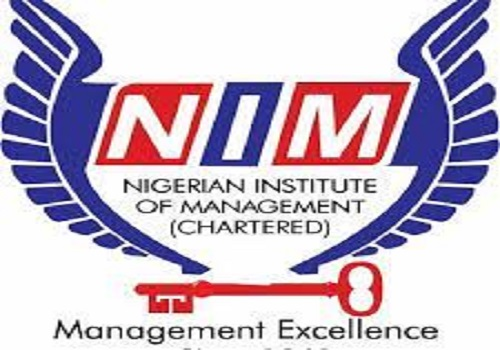
The Nigerian Institute of Management has advocated for the improvement of capacity-building among managers, to enhance their expertise in management and leadership.
The call was made at the 2023 Awards, Fellows, and Spouses’ Day Luncheon organised by NIM in Lagos recently.
The event had the theme “The Leadership Imperatives for All Managers in a Rapidly Changing Word”.
The keynote speaker, the Director of Corporate Services, African Finance Corporation and former President of the Chartered Institute of Management, Mr Anthony Arabome, emphasised that achieving influence and making a significant impact, regardless of the field, requires effective utilisation of management and leadership skills.
He highlighted the essence of leadership, pointing out that taking the lead necessitates taking the initiative and calculated risks to explore novel concepts.
Arabome stated that effective management entails consistently implementing best practices to ensure quality and customer contentment.
He said, “Leadership thrives on self-assurance and the ability to intuitively connect industry insights and business expertise with future market requirements. Conversely, management centres on control and responsibility for current performance, while leadership centres on inventiveness and accountability for the future.”
Furthermore, Arabome identified four key behaviours that consistently underpinned the exceptional performance of successful executives: quick and resolute decision-making, purposeful engagement yielding meaningful outcomes, proactive adaptation to changes, and dependable delivery.
He clarified without a doubt that leadership fundamentally revolves around achieving tangible results.
He stated that outstanding leadership could drive individuals towards accomplishing exceptional feats.
“This concept goes beyond mere performance, also encompassing significance and a sense of purpose,” he added.
In her welcome address, the President and Chairman of Council, NIM, Dr Christiana Atako, said that awards and fellowship upgrades were not a destination or an end in itself.
“I enjoin recipients not to be contented with just adding the title to their names but to see it as a call to higher responsibility and service to the institute, the management profession, and the nation,” she added.
She noted that the newly inducted members should place their competencies and specialisations at the disposal of the institute as the need arises.
According to her, for fellows to avail the institute of their professional competencies, they have been constituted into faculties.
“The faculties are expected to identify issues and challenges in areas of their disciplines, and to propose studies of such issues to be addressed with the view of making policy recommendations to government via the institute’s public policy advocacy initiative,” Atako added.





